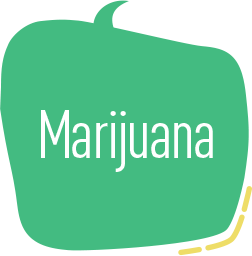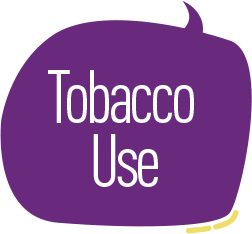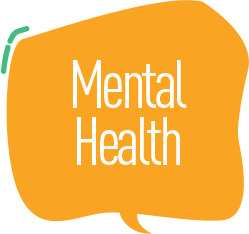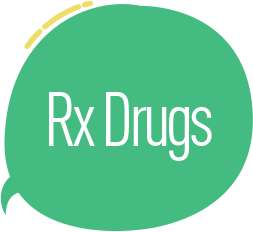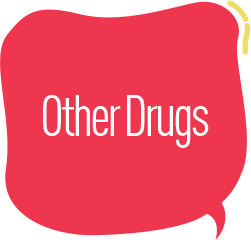Let’s talk about underage drinking.
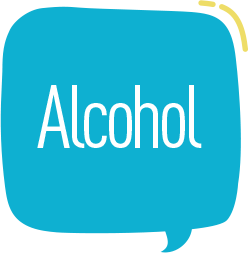
Even though drinking is illegal under the age of 21, alcohol is abused by teens and young adults more than any other substance. According to the Substance Abuse and Mental Health Services Administration (SAMHSA), around 60% of teens have had at least one drink by the time they turn 18.
Even more concerning, most underage drinking is binge drinking, which greatly increases a person’s risk of accidental injury, violence, legal troubles, and even death. That’s why it’s so important to talk with your teen or young adult about the dangers of underage drinking.
What parents need to know
The sooner you talk to your child about alcohol, the better the chance you have to influence their decisions and drinking.
- As children get older, they begin to think that underage drinking is OK and may even experiment.
- About 10% of 12-year-olds say they have tried alcohol. By age 15, that number jumps to 50%.
- Some children may try alcohol as early as 9 years old.
- Most 6-year-olds know that alcohol is only for adults.
- Between the ages of 9 and 13, children start to view alcohol more positively.
Underage drinking is dangerous and can have consequences that affect youth for the rest of their lives.
- Frequent binge drinkers (nearly 1 million high school students nationwide) are more likely to engage in risky behaviors, including using other drugs such as marijuana and cocaine.
- Children who use alcohol have higher rates of academic problems and lower school performance compared with nondrinkers.
- In 2009, underaged drinking was attributed to an estimated 1,844 homicides, 949,400 nonfatal violent crimes, and 1,811,300 property crimes.
Drinking lowers inhibitions and increases the chances that youth will engage in risky behavior or do something that they will regret when they are sober.
- Young people who use alcohol are more likely to be sexually active at earlier ages, have sexual intercourse more often, and have unprotected sex.
- Youth who drink are more likely to have health issues such as depression and anxiety disorders.
What the law says
- Underage drinking: Alcohol is illegal for any person under the age of 21
- Social Host Law: In Erie County, it is illegal for adults over the age of 21 to serve alcohol to minors or even knowingly allow alcohol to be consumed on their property, whether or not you directly provide the alcohol. Violations of these laws result in fines from $250 to $1,000 and up to a year in prison, depending on the number of offenses.
- Driving While Intoxicated (DWI): A person who drives with a Blood Alcohol Content/Concentration (BAC) of 0.08% or higher will be arrested and face criminal proceedings. A DWI typically costs the offender around $10,000 and can result in loss of license.
- Zero Tolerance Law: New York State’s Zero Tolerance Law means that any person under the age of 21 who drives with a BAC of 0.02% to 0.07% will be subject to either a “driving after having consumed alcohol” violation or a “Driving While Ability is Impaired by alcohol” (DWAI) criminal charge. Both of these charges result in expensive fines and a suspended driver’s license, and stay on the person’s record for up to three years.
Starting the conversation
Because alcohol is so widely used in our culture, talking about it with youth can be a tricky topic. Children watch parents having a glass of wine to relax, see advertisements for alcohol every day, and hear about drinking in music. Here are some tips for talking to your child about underage drinking.
- Make sure you are very clear in letting your teen know that you do not approve of underage drinking and will not allow it.
- Talk about the reasons why they should choose not to drink. Some examples are: not wanting to lose friends over saying or doing something bad, not wanting to ruin their reputation, not wanting to develop an addiction.
- Remind them that photos and posts on the internet or social media do not simply “go away.” Future colleges or employers might see or read something compromising and ultimately move on to another candidate.
- Discuss any family history of substance abuse disorders. Be sure to stress that the family history does not mean they will definitely develop an addiction, but that they are more vulnerable than others.
- Work through situations where your child might feel pressured to drink alcohol and discuss ways to ignore peer pressure.
- Teens should know that they can rely on you for a safe ride home if they believe the person they drove with is drunk.
Talking to children and teens about alcohol should not be a one-time event. Instead, it should be an open, honest, and ongoing conversation. Keeping these lines of communication open with your child will help them feel comfortable coming to you when they have questions or concerns.
What to say
For a general conversation:
- Ask, “What do you know about alcohol and what it does to your body?
- Be sure your child has accurate information. If you are unsure of an answer to one of their questions, look it up together on a reliable website (see below for some additional references).
If your child comes home late and you can smell alcohol.
- Be sure your child is safe and watch for signs of alcohol poisoning.
- Wait until the child is no longer under the influence to have a discussion.
If your child calls you from a party and asks to be picked up because other people are drinking.
- Praise your child for reaching out to you.
- The next day, remind them how proud you are that they felt confident in asking you for help.
If your child asks for a sip of your alcoholic drink.
- Say “No, this contains alcohol which is illegal for people to drink before they turn 21. Drinking alcohol when you are young and your brain is still developing can have serious consequences for your health.”
Other ways to prevent underage drinking.
- Lock up alcohol in your home.
- Watch when your child has friends over or parties at your home for alcohol use
- Get to know your child’s friends to be able to notice any changes in behavior or friend group.
- Stay connected to your child’s friend’s parents. Be sure they have your contact information and let them know they are free to contact you at any time to bring up concerns.
- Serve as a positive role model for the young people in your life. Children and teens pay attention to the world around them much more than you might think, and they begin to mirror the behaviors they see.


